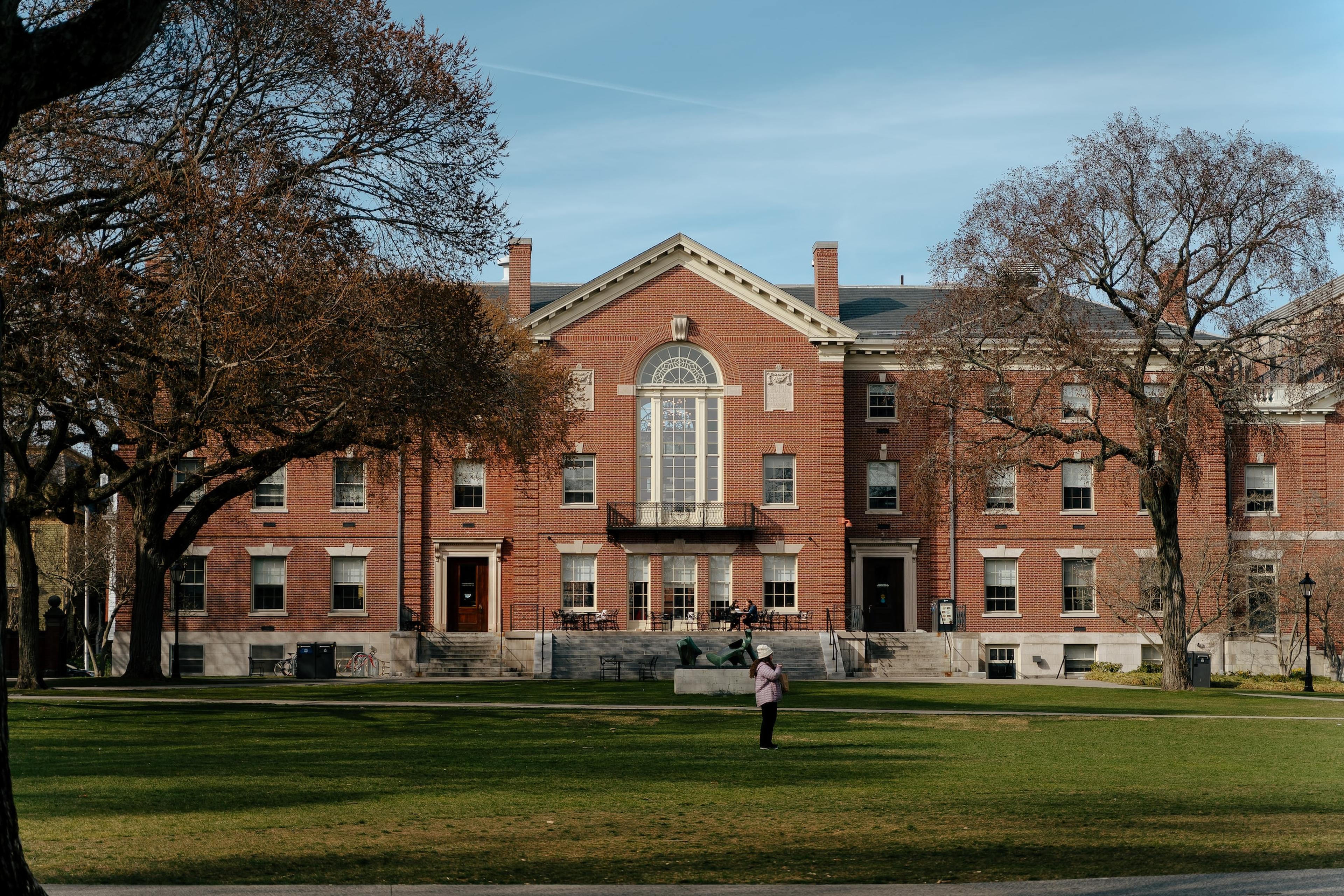
Table of Contents
The Princeton interview is a crucial component of the application process. It gives you an opportunity to showcase your personality, experiences, and motivations beyond what is captured on paper. To help you prepare, we have compiled a list of the most common Princeton interview questions, along with example answers, to guide you through this important step towards your dream university.
Exploring Frequent Princeton Interview Questions
Before we dive into the questions, let's take a moment to explore what the interviewers are looking for. The Princeton interview aims to assess your fit with the university's values, your intellectual curiosity, and your potential contributions to the campus community. Be prepared to discuss your academic interests, extracurricular activities, personal growth, and future goals.
The questions can cover a wide range of topics, including your academic strengths and weaknesses, your leadership experiences, and your ability to work in a team. The interviewers may also inquire about your career aspirations, your favorite books or movies, and your views on current events.
When it comes to discussing your academic strengths, it's important to highlight not only your high grades but also your passion for learning. Share specific examples of projects or assignments that have challenged you and how you overcame those challenges. Discuss any research or independent study opportunities you have pursued and how they have shaped your academic journey.
On the other hand, when discussing your weaknesses, it's crucial to demonstrate self-awareness and a willingness to improve. Talk about a subject or skill that you may find challenging and explain how you have sought support or taken steps to overcome those difficulties. Emphasize your growth mindset and your ability to learn from setbacks.Leadership experiences are highly valued at Princeton, so be prepared to discuss any positions of responsibility you have held. Highlight your ability to motivate and inspire others, as well as your problem-solving skills in a team setting. Share specific examples of how you have made a positive impact in your school or community through your leadership roles.
When discussing your career aspirations, it's important to show that you have thoughtfully considered your future goals. Talk about how your academic interests align with your desired career path and how Princeton can help you achieve those goals. Discuss any internships, research opportunities, or networking experiences you have had that have influenced your career choices.
Aside from academic and career-related questions, the interviewers may also ask about your favorite books or movies. Use this opportunity to showcase your intellectual curiosity and critical thinking skills. Discuss why a particular book or movie has resonated with you and how it has influenced your perspective on the world. This will give the interviewers insight into your interests beyond the classroom.
Lastly, be prepared to discuss your views on current events. Stay informed about national and global issues and be ready to articulate your thoughts on them. Show that you can think critically, consider different perspectives, and engage in meaningful conversations about important topics.
Crafting Strong Responses with Examples
When answering Princeton interview questions, it is essential to provide thoughtful and concise responses. Avoid simple yes or no answers and take the opportunity to showcase your critical thinking and communication skills. Be sure to support your answers with specific examples from your own experiences.
One example of a question that you may encounter during a Princeton interview is "Tell me about a challenging academic experience you have faced." This question provides an opportunity for you to demonstrate your problem-solving skills and resilience. When crafting your response, it is important to choose a specific academic challenge that you have encountered and explain how you overcame it.
For instance, you could discuss a time when you struggled with a complex math problem. You can describe the initial confusion you felt when confronted with the problem and how you approached it step by step. By explaining the strategies you used to break down the problem and the resources you sought out for guidance, you can showcase your critical thinking abilities and determination to find a solution. Additionally, you can emphasize the importance of perseverance and how you did not give up until you successfully solved the math problem.
Another question that you may be asked is "Tell me about your extracurricular involvement and its impact." This question allows you to highlight your leadership abilities and the positive influence you have had in your community. When responding to this question, it is important to choose an extracurricular activity that you are genuinely passionate about and have made a significant impact in.
For example, you could elaborate on your experience organizing a charity event. Describe the process of planning and executing the event, including the challenges you faced and how you overcame them. Highlight the leadership skills you utilized, such as delegating tasks, coordinating with team members, and managing the event logistics. Additionally, discuss the impact the charity event had on the community and how it helped raise awareness and funds for a meaningful cause. By sharing this example, you can demonstrate your ability to take initiative, work collaboratively, and make a positive difference in the world around you.
Tackling Behavioral and Academic Questions
Behavioral questions are common in Princeton interviews. These questions aim to assess your ability to handle different situations and demonstrate the qualities that Princeton values. They provide interviewers with insights into your problem-solving skills, decision-making abilities, and interpersonal dynamics. By asking behavioral questions, Princeton seeks to understand how you navigate challenges and work collaboratively.
Let's explore some examples of behavioral questions that you may encounter during your Princeton interview:
- Describe a time when you faced a conflict and how you resolved it.
- Tell us about a time when you had to adapt to a new and challenging environment.
When answering these questions effectively, it is helpful to use the STAR method (Situation, Task, Action, and Result). This structured approach allows you to provide a comprehensive response that highlights your thought process and demonstrates your ability to handle complex situations.
Start by describing the situation or task you were faced with. Provide context and background information to help the interviewer understand the scenario. Next, explain the specific actions you took to address the situation. Be sure to emphasize your thought process, problem-solving skills, and any leadership or teamwork involved. Finally, highlight the positive results or lessons learned from your actions. Reflect on how the experience shaped your personal growth and development.
In addition to behavioral questions, expect academic-related inquiries during your Princeton interview. The interviewers may ask about your favorite subjects, a particularly influential teacher, or how you approach challenging assignments. These questions aim to gauge your intellectual curiosity, academic engagement, and critical thinking skills.
When discussing your favorite subjects, delve into why they captivate your interest. Share specific examples of how these subjects have influenced your perspective and shaped your academic journey. Discuss any research projects, extracurricular activities, or independent studies that have deepened your understanding of these subjects.
If asked about an influential teacher, reflect on how their guidance and mentorship impacted your academic and personal growth. Discuss specific instances where their teaching style or support helped you overcome challenges or discover new passions.
When addressing how you approach challenging assignments, emphasize your ability to think critically and analytically. Discuss your strategies for breaking down complex tasks, managing time effectively, and seeking additional resources when needed. Highlight any instances where you went above and beyond to excel academically.
Remember, the key to answering both behavioral and academic questions is to provide thoughtful and genuine responses. Showcase your unique experiences, perspectives, and strengths to leave a lasting impression on the interviewers.
Developing Persuasive and Authentic Answers
When it comes to preparing for an interview, many people tend to rely on memorizing scripted responses. However, taking this approach can often make your answers sound rehearsed and lacking in authenticity. Instead, it is crucial to focus on developing answers that are both persuasive and genuine, reflecting who you truly are as an individual.
One way to achieve this is by showcasing your genuine enthusiasm for learning. Talk about your passion for acquiring knowledge and how it has shaped your academic journey thus far. Highlight specific instances where your curiosity has led you to explore new subjects or delve deeper into existing ones. By doing so, you will not only demonstrate your love for learning but also show the interviewers that you are a motivated and intellectually curious individual.
Another important aspect to consider is sharing your unique experiences. Everyone has a story to tell, and by sharing yours, you can provide the interviewers with a glimpse into your life and the perspectives you bring to the table. Whether it's an interesting travel experience, a challenging project you undertook, or a personal struggle you overcame, these anecdotes can help paint a vivid picture of who you are as a person.
However, it is essential to connect these personal anecdotes to the values and ideals that Princeton holds dear. Take the time to research and understand the university's mission, vision, and core principles. By aligning your experiences with these values, you will demonstrate to the interviewers how you can contribute to the vibrant academic and social environment on campus.
For instance, if you have a story about how you organized a community service project, you can emphasize how this experience aligns with Princeton's commitment to service and making a positive impact on society. Alternatively, if you have a personal anecdote that showcases your resilience and determination, you can connect it to Princeton's value of perseverance and intellectual growth.
Remember, the goal is not to simply impress the interviewers but to provide them with a genuine and persuasive understanding of who you are. By developing answers that reflect your true self and connecting them to Princeton's values, you will stand out as an authentic candidate who is genuinely excited about the opportunity to contribute to the Princeton community.
Practice Strategies for Princeton Questions
Practicing before your Princeton interview is crucial. Enlist the help of friends, family members, or teachers to conduct mock interviews. Practice answering potential questions aloud, paying attention to your tone of voice, body language, and clarity of expression.
Remember to be concise in your answers while still covering all relevant details. Using a timer during your mock interviews can help you develop this skill and ensure that you don't become long-winded or forget important points during the actual interview.
Incorporating Princeton's Values
Princeton University is known for its commitment to excellence, service, and community. When preparing for your interview, take the time to research the university's core values and incorporate them into your responses.
Consider how your own values align with those of Princeton and highlight them during the interview. Discuss how you intend to contribute positively to the campus community, whether through academic pursuits, extracurricular involvement, or community service.
Reviewing and Refining Your Responses
Once you have practiced answering the most common Princeton interview questions, take the time to review and refine your responses. Listen to feedback from your mock interviewers and make adjustments as necessary.
Consider recording yourself during your practice sessions. This will allow you to listen back and identify areas for improvement, such as vocal clarity, pacing, or the need to provide more specific examples. Refining your responses will enhance your confidence and ensure you present yourself in the best possible light during the actual interview.
Want expert help practicing your answers or refining your story? Work with a top college admissions coach—many of our admissions mentors have been through Princeton interviews themselves or served as alumni interviewers. They’ll help you polish your responses, ease your nerves, and make sure your personality shines through.
FAQs
What should I wear to my Princeton interview?
- While there's no formal dress code, it's advisable to dress neatly and comfortably. Business casual attire—such as a collared shirt or blouse with slacks or a skirt—is appropriate. The key is to present yourself in a manner that reflects respect for the occasion without overdoing it.
How long does the Princeton interview usually last?
- Princeton alumni interviews typically last between 30 to 60 minutes. However, the exact duration can vary depending on the flow of conversation and the interviewer's schedule.
Can I bring notes or a resume to the interview?
- It's acceptable to bring a copy of your resume for reference, but avoid reading from it directly. The interview should be a conversational exchange, so use any notes sparingly to support your discussion without disrupting the natural flow.
What if I don't know the answer to a question during the interview?
- If you're unsure about a question, it's perfectly fine to take a moment to think or to ask for clarification. Interviewers appreciate honesty and thoughtfulness over rehearsed or forced responses.
Is it appropriate to follow up with a thank-you note after the interview?
- Yes, sending a brief thank-you email to your interviewer is a courteous gesture. Express your appreciation for their time and the insights they shared. This follow-up reinforces your interest in Princeton and leaves a positive impression.












